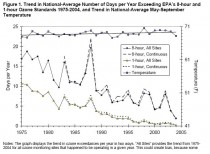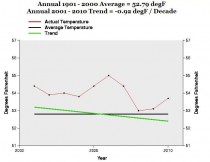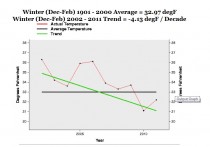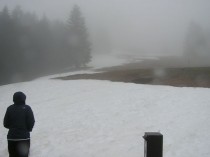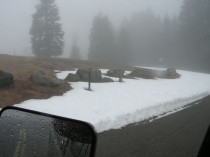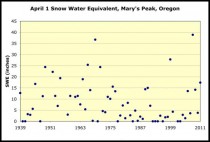In celebration of World Environment Day, the Queensland Division of the Property Council of Australia convened a breakfast meeting last Friday morning (June 3rd) to debate the topic “Australia needs a carbon tax”.
Leading speaker for the motion was Mr. Matthew Bell (Climate Change & Sustainability Services, Ernst & Young), supported by Ms. Kellie Caught (Acting Head of Climate Change, WWF Australia) and Mr. Kirby Anderson (Policy Leader, Energy Infrastructure, General Electric).
Speaking against the motion were Mr. Michael Matusik (Director, Matusik Property Insights), supported by Mr. John Humphreys (Director, Human Capital Project, University of Queensland) and Professor Bob Carter (James Cook University and Institute of Public Affairs).
The audience of about 150 persons were treated to some pointed exchanges, with the team speaking for the motion concentrating rather more on the science, and their opponents almost exclusively on the economics and cost:benefit analysis of the introduction of a carbon tax.
One compelling argument was the observation that to introduce a carbon tax of $25/tonne of carbon dioxide would cost around $100 billion by 2020, for a notional benefit of 0.0002C (two ten thousandths of a degree) of warming averted.
The opponents of the tax were awarded a clear win, on rendered applause, by debate Chairman Mr Mark Ludlow (Australian Financial Review).

|
Frozen in Time
Jun 05, 2011
Warming Alarmists Lose Yet Another Debate
Jun 03, 2011
Union of Concerned Scientists caught in yet another lie…about warming, ozone and health risks
By Joseph D’Aleo Like their allies in the universities and media, the Union of Concerned Scientists have taken both sides of many issues in recent years - decreasing snow/increasing snow, warm winters/cold winters, decreasing western snowpack and water supply/increasing western snowpack and water supply, increasing drought/increasing flooding etc. Now they’re health experts. They get far more credibility in the media than they deserve. Take for example today’s USATODAY where again their story is wrong an every count. USA Today reports: “Left unchecked, climate change could increase breathing problems and health costs by exacerbating ground-level ozone, warns a report Thursday by the Union of Concerned Scientists. Higher ozone levels could trigger 2.8 million additional serious respiratory illnesses and 944,000 extra missed school days in the United States in 2020 that could cost $5.4 billion, according to the peer-reviewed report by the Cambridge, Mass.-based environmental group. ‘Even a small increase in ozone due to a warmer climate would have a significant impact on public health,’ said report co-author and UCS public health expert Liz Perera in announcing the findings. ‘It would mean more asthma attacks, respiratory illnesses, emergency room trips and premature deaths.’ The most vulnerable U.S. states? The study used a mapping model by the Environmental Protection Agency to calculate national impacts and rank the 10 states most likely to be harmed in 2020. In terms of costs, the research found that California would be hit hardest, followed by Texas, New York, Pennsylvania, Illinois, Ohio, Michigan, North Carolina, New Jersey and Virginia. It said these states have large numbers of urban residents, children and seniors as well as high levels of nitrogen oxides and VOC (volatile organic compound) emissions from vehicles and power plants...If global warming emissions continue to increase, the study estimates that average U.S. temperatures could rise 3 to 5.5 F by 2050 and result in about 11.8 million additional serious respiratory illnesses, 29,600 more infant and senior hospitalizations and 4.1 million additional lost school days in 2050. Yet it says these health impacts could be cut about 70% if emissions decline and temperatures rise 2 to 4 F instead. “The good news is we can address both ozone pollution and climate change by cutting fossil fuel emissions,’ Todd Sanford, a UCS climate scientist and report co-author, said in a statement.” CCM and former state climatologist George Taylor responded: Higher temperatures do not cause higher ozone. Ozone in the atmosphere is produced mainly from a reaction between sunlight and nitrogen dioxide (NO2). So sunny summer days end up being the warmest AND the highest in ozone, but it’s the SUN, not the air temperature, that causes the ozone to rise. Joel Schwartz and I wrote a report called Air Quality False Alarm, some years ago addressing this issue. Excerpt:
During the last 30 years, urban temperatures have risen, yet ozone levels have declined. Urban temperatures have risen an average of 1-3 degrees Fahrenheit (F) during the last 30 years, yet ozone levels have fallen (National Climatic Data Center 2004). The temperature increase is due mainly to the urban heat island effect, rather than global climate change, as demonstrated by the fact that rural temperatures have risen more slowly than urban. For
Nevertheless, despite increasing urban temperatures, the average number of exceedances per year of EPA’s 8-hour ozone standard declined 75 percent from 1975 to 2004, while exceedances of the 1-hour standard declined 95 percent. Figure 1 shows the trend in the national-average number of days per year with ozone exceeding EPA’s 1-hour and 8-hour ozone standards for all ozone monitoring locations in the U.S. The graph also includes the national average trend in peak daily summer temperatures in the U.S. from 1975 to 2004. Note the large variation in 8-hour ozone levels from year to year. These short-term variations are due to differences in weather from year to year, including not only temperature, but rain, wind, and other meteorological ariables. Superimposed on these short-term variations is a long-term decline in ozone exceedance days due to ongoing reductions in ozone-forming emissions.
Icecap Note: The other part of the UCS story that fails is the claim of warming. Here in the US, temperatures have declined the last decade as the solar activity has declined and oceans begun cooling. The winter cooling is most significant.
then winter:
When will the media stop thinking of the UCS as real scientists with real concerns and recognize they are an enviromental advocacy group much like the WWF, Greenpeace, EDF?
Jun 01, 2011
Offshore Drilling? Obama Says Nil baby Nil
By Art Horn Drill baby drill has been a frequent rallying cry to inspire America to drill for oil in its offshore waters. This action would free us from energy sources that are unstable and unpredictable. Free market speculation uses this instability to drive up the price of petroleum. The Obama administration is dead set against allowing any offshore drilling. Instead of “Drill baby drill” his policy is “Nil baby nil”. The truth is that president Obama is trying to force an energy production revolution in America with no real estimate of what collateral damage may result from its attempted implementation. The main stream news media has given Obama a complete free pass on this issue. Right now 98% of America’s off shore oil reserves are off limits to drilling. This moratorium on domestic energy production is just one of the weapons in the energy revolution being spearheaded by Energy Secretary Steven Chu. As President Obama’s right hand man, Chu is also doing everything possible to limit production of our vast resources here at home so that the so called “renewables” become more financially attractive to investors. In September of 2008 Chu said “Somehow we have to figure out how to boost the price of gasoline to the levels in Europe,” Gas prices in Europe are in the range of $7.50 to $9.50 dollars a gallon. On December 10th, 2010 Interior Secretary Ken Salazar announced a new moratorium on offshore drilling, effective for seven years! One of the main strategies is to make extremely expensive wind and solar energy more attractive by driving up the cost of gas. This administration has no intention of allowing oil companies to find more oil offshore that could short circuit their plans. In April the EPA was handed a convincing defeat. The House voted 255 to 172 with 5 voting present to pass House Resolution 910 which is “To amend the Clean Air Act to prohibit the Administrator of the Environmental Protection Agency from promulgating any regulation concerning, taking action relating to, or taking into consideration the emission of a greenhouse gas to address climate change, and for other purposes.” Be very clear that the Obama administration has no intention of taking this defeat lying down. When the president realized that his first choice to control carbon dioxide emissions was dead he responded with “Cap and Trade was just one way of skinning the cat, it’s was not the only way.” The president has every intention of finding that other way. One of those other ways to skin the cat is to sabotage the efforts of American oil companies in their attempt to increase domestic supplies of energy. This under the radar attack will be spearheaded by the combined forces of two federal agencies. The first is a new agency that the Obama administration created after the BP oil spill. It replaced the Minerals Management Service. It has the imposing big brother sounding title of the Bureau of Ocean Energy Management, Regulation and Enforcement (BOEMRE). Not the friendliest sounding agency title for any company looking to explore for offshore oil I’d say. I think it’s safe to say that the word “Regulation” in the agency name is code for interference and obstruction with any method possible.
The second federal agency in the war against offshore exploration by our oil companies is the National Oceanic and Atmospheric Administration (NOAA). This agency is the official home of the government’s oceanographers. After recommendations from a presidential commission the two agencies have signed a memorandum of understanding. This memorandum is more code from the administration. The real message from the memorandum is that these are marching orders from the president to get together and defeat the enemy, big oil and its dirty carbon dioxide polluting ways. The presidential commission noted that under previous administrations the NOAA oceanographers had little say in how federal leases were auctioned. The obvious intent now is for that to change.
By using this new two pronged attack strategy combining the strengths of the Bureau of Ocean Energy Management, Regulation and Enforcement and the National Oceanic and Atmospheric Administration, the president hopes to look good for the upcoming election by allowing consideration of offshore drilling. He will be able to say in speeches that he is exploring for oil offshore to cut America’s dependence on imported oil. This will be a total smoke screen. Here is a perfect example of this deceit. At a recent hearing before the House Oversight and Government Reform Committee, EPA administrator Lisa Jackson said “Last year American oil production reached its highest level since 2003.” Committee Chairman Darrell Issa R-California responded with “It takes five years at best case...from the beginning of the process to drilling production. So isn’t all the credit for this new peak in the previous administration? Exactly! Attempting to take credit for what the Bush administration actually did exposes what the current administration has done to develop our energy reserves at home, nothing. This deceit also reveals their true intentions as well. They have absolutely no intention of developing offshore oil.
With that kind of agenda exposed to the light of day how will the combined forces of the Bureau of Ocean Energy Management, Regulation and Enforcement and the National Oceanic and Atmospheric Administration stop oil companies from developing offshore resources? The job of these two agencies will be to work day and night for as long as it takes to delay, obstruct and stop anything that might actually bring oil up from the ocean floor. They will commission studies that will take months if not years to complete. Then they will write reports that will show the detrimental impacts of offshore drilling on a wide variety of marine life ranging from the microscopic to whales. Then these studies will be sent to Congress where we will then have hearings as to what the studies show and why we should delay any offshore drilling until more studies can be completed. Remember “Cap and Trade was just one way of skinning the cat, it’s was not the only way.” Far from “Drill baby drill” it will be “Nil baby Nil”.
May 31, 2011
Mary’s Peak Snow
By George Taylor, CCM, Applied Climate LLC Mary’s Peak, west of Corvallis, is the tallest peak in the Oregon Coast Range at about 4100 feet. There is an interesting local legend connected with snow on Mary’s Peak: An Oregon State University (OSU) professor promised an “A” to every student in his spring term class if snow was still visible atop Mary’s Peak (as viewed from Corvallis) on June 1st. Apparently it happened only once in the professor’s career. It happened again in 1999, and then occurred again in 2008. In fact, snow was visible in 2008 almost to the end of June. My friend Dave Twining is a graduate of OSU (PhD in Atmospheric Sciences) and a retired military officer who spends his time growing wine grapes (and making wine) and flying. He also knows a LOT about weather. In 2008 Dave sent me the following note, and gave me permission to use it. Hi George, I thought you might be interested in an addition to your report of some weeks ago on the long lasting snowpack on Mary’s Peak. I often fly over it and had noted, in mid-winter, that the snow depth, as judged by the little building at the parking lot appeared to be about 8 ft deep instead of the normally observed 1-2 ft after a storm. The snow there is more representative than that at the very top of the peak for the wind blows most of it off in that exposed position. Long after the snow was no longer visible from the valley, I could see, from the air, snow fields of perhaps an acre or two somewhat below and to the northeast of the trail to the top. During July these fields diminished but on my final flight on July 21st I saw a patch approximately 25 x 10 ft still remaining. Although, as you well know, the winter was neither unusually cold nor wet, there did appear to me to be an unusual proportion of storms with a snow level of just below 4,000 ft. On very wet winters there seem to me to be a large number of storms with a high freezing level while on some very cold winters there may be snow to the valley floor but the relatively few inches deposited in these moisture-limited storms make little relative contribution to the mid-altitude zone snow-pack. Dave This year we have seen another cool, wet spring. On May 30, 2011, I drove up Mary’s Peak and took the following pictures at the parking lot a few hundred feet below the summit.
Rather amazing for almost June 1. By the way, snow is visible atop the Peak from Corvallis, so barring a very rapid warming, we’ll have another “June 1 snow spottings,” the third in 13 years. But what about long-term snow conditions? Mary’s Peak has a “Snow Course” site operated by USDA NRCS (http://www.wcc.nrcs.usda.gov) with data back to 1939. They don’t report the June 1 snow pack (it’s usually gone anyway), but below are the snow water equivalent (SWE) reports for April 1 every year.
According to Phil Mote of OSU, There’s a peak about 4100 feet - Mary’s Peak one of the hills in the coast range of Oregon, and the only location in Oregon where U.S. government snowpack measurements go back. It used to be fairly common for the April 1st survey on Mary’s Peak to have quite a bit of snow. By the 1980’s it was getting common to have no snow on April 1st. Notwithstanding that Mary’s is one of hundreds of snowpack sites, stopping that trend in the 1980s certainly gives a different picture than if the last several decades are included! The article went on to say Philip Mote explained how colleagues in California, led by climatologist David Pierce of the Scripps Institution of Oceanography, were able to determine, using climate models, that the snowpack melt his own team had observed in the western United States was due to the warming temperature caused by our own greenhouse gas emissions. Snowpack melt is expected to accelerate, he added. Not this year, anyway! Icecap Note: SIO’s model that Phil Mote thought supported his claims, was tuned to exaggerated CO2 ‘forcing’ and very likely totally ignored the PDO cycle, the real snow driver for the western United States. Also see this response by Dr. Gordon Fulks to George’s story: Dear George, Thanks for the photos of Mary’s Peak. The Snow Water Equivalent (SWE) chart for Mary’s Peak certainly shows the influence of a positive Pacific Decadal Oscillation (PDO) from about 1977 to 2005. Professor Mote’s contention that after 1980 it was common to have no snow on April 1st is born out by the data. What he would rather not have anyone recognize is the return of a substantial snowpack in recent years, much like that from the years 1945 to 1977. Did we stop burning fossil fuels in 2005, or have we just entered another cold cycle (negative PDO)? No wonder Mote would not answer my questions at his USGS seminar at Portland State University last week!
Gordon
P.S. Doesn’t this argue that Oregon needs a State Climatologist (like you) who will report ALL the facts and not just those that favor the perspective of those paying him? Of course, Oregon does not have a State Climatologist anymore, perhaps because the ruling class does not think we need one. They know that our climate is warming relentlessly, and Phil Mote and his prophets of doom will continue to predict it regardless of reality!
May 30, 2011
Increasing evidence that green growth strategies are job killers
Opinion by Peter Foster, Financial Post The Organization for Economic Co-operation and Development - whose members and affiliates now represent 80% of world trade and investment - this year celebrates its 50th anniversary. It seems to have come a long way from its original, noble purpose. The organization had its roots in the desire, after the Second World War, not to repeat the mistakes made after the First. Instead of demanding reparations from Germany, the Allies decided that what was needed was to encourage peaceful European co-existence and reconstruction. This approach was the brainchild of George C. Marshall, who had been U.S. Army chief of staff during the war, and subsequently became secretary of state, then secretary of defense. He won the Nobel Peace Prize in 1953. Green alarmists such as Al Gore (who, astonishingly, also won the Peace Prize, in his case, in 2007, for stoking climate hysteria) often maintain that what is needed is a new Marshall Plan, only its objectives would be the reverse of those of George Marshall. The OECD seems more than happy to get with the new anti-Marshall program. It has now become a full-blown advocate of “sustainable development,” which is code for an anti-market ideology of less freedom and more bureaucratic control of the industries the Marshall Plan promoted. Sustainable development was given its imprimatur by the United Nations-based, and socialist-packed, Brundtland Commission, which led to the mammoth 1992 UN environmental and development conference at Rio. Out of Rio emerged, among many other interventionist initiatives, the Kyoto Accord to control climate by restricting industrial output, and thus growth and jobs. The OECD’s new sustainable orientation is confirmed by a report released this week on “Green Growth” (along with a “Better Life Index,” whose ideological slant was dissected in this space yesterday by William Watson). The report, and adjunct documents, propose ever-expanding bureaucratic co-ordination and monitoring of economic development at every level. However, there are major problems with this rationalist Utopia. The first is increasing evidence that climate science may have been manipulated; the second is that green growth is based on a model of government-promoted industrial strategy that has consistently failed since Adam Smith pointed to its shortcomings more than 200 years ago. The Green Growth report makes clear that it is designed to support next year’s Rio+20 meeting, which will again take place in Brazil. “The OECD Green Growth Strategy,” says the report, “leverages off the substantial body of analysis and policy effort that flowed from the Rio conference 20 years ago.” Green Growth is claimed to be sustainable development’s “operational policy agenda.” The problem is that sustainable development has never had an operational definition. Super-bureaucrats tend to specialize - like Al Gore - in simply ignoring inconvenient truths. This is typified in the Green Growth report’s assertion that the results of last year’s climate meeting at Cancun, at which a successor to Kyoto was to be agreed upon, “give reason to be optimistic that progress can be made.” In fact, Cancun represented the utter collapse of the Kyoto process. It is ironic that one of the most incisive critics of climate-change science and policy is the British academic David Henderson, a former head of economics at the OECD. Meanwhile the OECD itself produced a report in 2003 that suggested that government-funded R&D added nothing to growth. And yet the Green Growth report is predicated on governments’ ability not merely to successfully identify and fund technologies of the future, but to set the “right” market prices to achieve their God-like aim of regulating both resource use and the global environment. Such aspirations have to be set against the actual havoc being wrought by green industrial policies such as biofuel subsidies, which have hit the poor hardest. Still, bureaucracies thrive and expand not by solving problems but by creating and purporting to address them, and by seeding like-minded institutions. The OECD report notes that “Creating a global architecture that is conducive to green growth will require enhanced international co-operation.” Further work “will be based on a deepened collaboration with other international organizations, including the UN, the World Bank and the Global Green Growth Institute.” The Global Green Growth Institute was set up by Korea last year as part of President Lee Myung-bak’s modest renewable energy vision not just for Korea but the world. You can understand President Myung-bak’s enthusiasm once you realize the sorts of benefits it holds for Korean companies. For example, Samsung secured a multi-billion dollar “sweetheart” wind and solar deal with the Ontario government that depends on Ontario hydro consumers paying huge multiples of the regular price for electricity via feed-in tariffs. That’s what the green growth strategy’s aspirations of “changing the payoffs in the economy” seems to mean. Favoured companies get paid off. There is increasing evidence of what economic theory, and history, already suggests: that green growth strategies are job destroyers. In fact, this is not inconsistent with one of the Brundtland commissioners’ desire to “stop industrial civilization as we know it,” but it is an awfully long way from what George C. Marshall had in mind when he set out to rebuild European industry from the devastation of “brown” fascism. |


